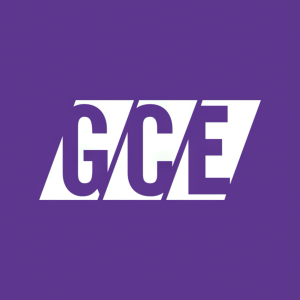FEDERAL GOVERNMENT CONTINUES ATTACK WITH YET ANOTHER INQUIRY VS. GCU
VA orders another risk-based audit eight months after previous audit was refuted, marking 5th investigation vs. Christian university since it sued Department of Education
The action, which was ordered as a follow-up to the Federal Trade Commission's (FTC) allegations last week, is the fifth inquiry launched by the VA, FTC and
"This is unfortunately yet one more example of unelected bureaucrats weaponizing federal government agencies in a coordinated effort to target institutions to which they are ideologically opposed," said GCU President Brian Mueller. "The level of unwarranted scrutiny being imposed on GCU is nothing short of harassment."
The FTC stated publicly in October 2021, not long after GCU filed its lawsuit against the Department of Education, that the three agencies would be coordinating efforts to target for-profit institutions, primarily due to high loan default rates at such institutions. That has taken place even though 1) GCU is lawfully recognized as a nonprofit by the IRS,
"Our metrics in all of those areas are stellar, yet they still launched broad-based investigations that are essentially fishing expeditions intended to needlessly damage the University's reputation," Mueller said. "Their accusations are duplicative, lack merit and will be proven false – the DOE and FTC's accusations related to our doctoral disclosures have already been refuted twice in federal court – but the agencies will still have achieved their goal of creating negative publicity and imposing voluminous amounts of paperwork and legal costs for an institution to which they are opposed."
FTC spokesperson Douglas Farrar, echoing similar comments by the DOE, has stated their lawsuit was filed to "protect students harmed by the alleged deceptive and illegal practices," yet neither agency has provided GCU any evidence that students were harmed nor have they identified any student complaints supporting their allegations. Rather, their claims are based on their same subjective impressions about the same doctoral disclosure documents. In other words, two federal agencies have focused their resources to bring identical claims against GCU without any corroborating evidence — resources that could be used to investigate schools with legitimate concerns. This is not about protecting students, it is about targeting GCU.
Similarly, the previous VA risk-based audit, which was completed on April 27, resulted in a "finding" that claimed two innocuous statements in GCU's advertising – "Cybersecurity experts are in high demand" and "Every company needs cybersecurity" – were somehow "erroneous, deceptive or misleading" even though such comments are 1) common sense, 2) prevalent in marketing efforts among institutions in higher education (17 of the 23 universities listed among
The VA claim was both legally and factually inaccurate, and GCU refused to sign a statement acknowledging these statements were improper. After GCU detailed the extensive approval process it already has in place to ensure factual statements in its marketing and advertising communications are supported by a reasonable basis, the VA's Arizona State Approving Agency (SAA) – with whom GCU has had a long-standing positive regulatory relationship -- was satisfied with GCU's response and the safeguards that are in place.
"In our past VA audits, we have had no significant findings and members of our State Approving Agency have verbally praised our operations for military veterans, even holding us up as an example that should be training other universities," Mueller said. "The only thing that has changed since then is the three federal agencies coordinating actions to impose their authority and ideology on state agencies in order to target specific institutions."
Taking those enforcement powers a step further, the federal government announced this week another effort to expand the powers of the Department of Education to give it even more authority over independent accrediting bodies such as the Higher Learning Commission and state entities that oversee education at the local level. That is a frightening concentration of power and potential abuse by the federal government and a powerful argument for returning regulatory authority in education to the state level.
The new federally-mandated VA audit, which must be carried out by the Arizona SAA, was implemented because the FTC filed a lawsuit against GCU with claims of deceptive advertising regarding GCU's lawful nonprofit status. These federal agencies are coordinating their actions and then citing one another to justify taking further actions. In this self-perpetuating cycle, the FTC cites Department of Education claims in its lawsuit, and the federal VA now cites the FTC as the impetus for its latest audit.
"American people are losing confidence in the federal government to be fair and objective and there are clearly no checks and balances to prevent this type of selective enforcement," Mueller said. "On behalf of our 118,000 students and families, 10,000 faculty and staff, 255,000 alumni, 500 companies represented on our advisory boards, thousands of Christian high school partners and countless community stakeholders, we are going to continue to stand up for ourselves and fight this ideological government overreach until common sense prevails – either through an objective entity such as the federal court system or a systemic change that restricts the arbitrary and selective enforcement activities of these federal agencies."
About Grand Canyon University: Grand Canyon University was founded in 1949 and is
![]() View original content to download multimedia:https://www.prnewswire.com/news-releases/federal-government-continues-attack-with-yet-another-inquiry-vs-gcu-302027300.html
View original content to download multimedia:https://www.prnewswire.com/news-releases/federal-government-continues-attack-with-yet-another-inquiry-vs-gcu-302027300.html
SOURCE Grand Canyon University







